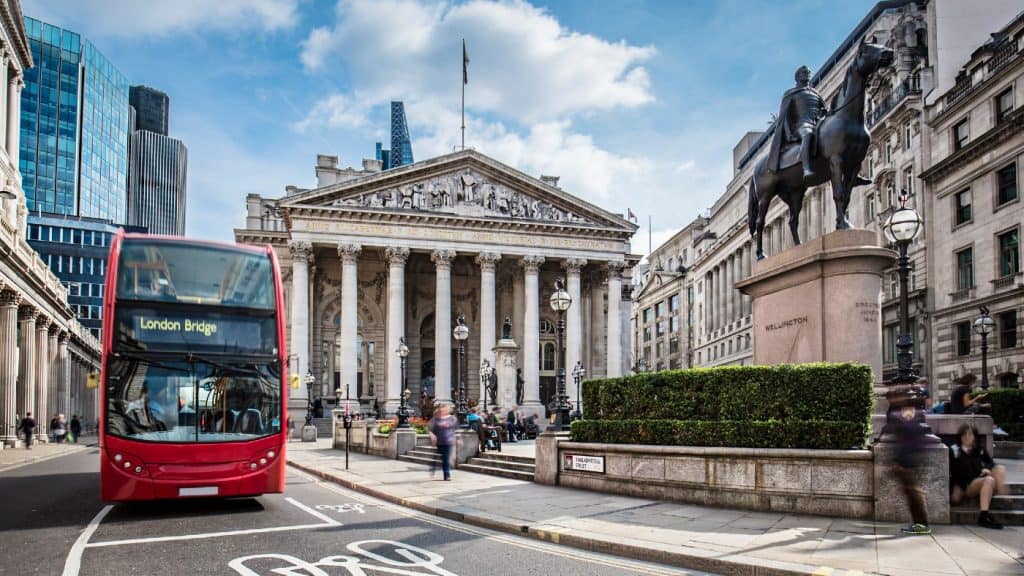Share this page:
There’s no doubt that the UK economy is still recovering from the effects of Covid-19. But are we finally over the worst of it? Or is another recession lurking around the corner? Let’s take a look.
What is a recession?
The UK’s Gross Domestic Product (GDP) is a measure of the country’s total output of goods and services in a given year. If the UK’s GDP falls in two successive quarters, the country is technically in the midst of a recession.
A recession is bad news, as it means the UK is effectively producing fewer goods and services than in previous months. This can lead to a number of negative outcomes, such as increased unemployment and reductions in income and wealth, as well as feeding general uncertainty about future jobs and investment.
The UK last experienced a recession in 2020, when the economy shrank in the first two quarters of the year following the emergence of the global pandemic. In 2020, the UK economy reduced by 2.9% in Q1, and by a massive 19% in Q2.
What causes a recession?
It’s difficult to pinpoint a single cause of a recession. That’s because recessions are often caused by a combination of different factors. These factors, after a period of time, can have a devastating impact on the economy, leading to a recession.
Here are four common factors that can leave the economy in the red.
1. High interest rates
High interest rates make borrowing more expensive. This can limit the incentive for businesses to borrow capital and invest in new ventures, which can harm employment.
2. Stagnant wages or reduced income
Low wage rises can harm confidence in consumer spending. In other words, if consumers are suffering from a lack of wage growth, they’ll probably hold back on making big purchases.
3. Low confidence in the banking sector
When economic troubles occur, particularly in developing nations, it’s not uncommon to witness ‘bank runs’, whereby depositors seek to withdraw all of their savings at once, fearful of losing everything. This can create a huge domino effect in the economy, and can even spark a currency crisis.
4. Asset bubbles
When asset prices are overvalued, savers may seek to chase high returns by investing in specific sectors. This behaviour can limit consumer spending in the wider economy, making a recession more likely to occur.
Is the UK heading for another recession?
Recessions can rarely be predicted with great accuracy. Despite this, there are clear signs the UK economy isn’t as healthy as it could be.
For starters, the UK’s rate of inflation is now running at a hefty 4.2%. That’s more than double the government’s annual inflation target. However, on the surface, high inflation is unlikely to cause a recession.
When inflation takes off, individuals may be inclined to spend or invest more of their money. That’s because spending or investing money may be seen as a better option than holding currency that is losing value, especially when savings rates are low.
That being said, rising costs of goods and services can lead to ‘cost-push inflation’. This is when wages and raw material prices increase as a result of high inflation in the wider economy. When this happens, inflation can spiral and the only real way to combat it is for the UK’s central bank, the Bank of England, to increase its base rate.
If and when this happens, borrowing will become more expensive. This can hamper business investment and may lead to reduced employment.
Aside from cost-push inflation increasing the chances of a recession, it’s also worth noting that much of the wealth of the UK economy is tied to housing. This is important as many believe the UK housing market is a textbook example of an asset bubble.
Should house prices ever decrease – possibly due to a base rate rise – then consumer confidence will be impacted, which could reduce overall spending. This, too, may fuel the chances of a UK recession, though few first-time buyers will complain!
Are you worried about the rising costs of everyday goods? See our article that explains how to protect your savings from inflation.
Was this article helpful?
YesNo
About the author
Karl is a writer specialising in investing and personal finance content. He regularly contributes articles on savings, bank accounts, mortgages, and loans. He was previously a Personal Finance Writer for MoneySavingExpert.
Share this page:
Some offers on The Motley Fool UK site are from our partners — it’s how we make money and keep this site going. But does that impact our ratings? Nope. Our commitment is to you. If a product isn’t any good, our rating will reflect that, or we won’t list it at all. Also, while we aim to feature the best products available, we do not review every product on the market. Learn more here. The statements above are The Motley Fool’s alone and have not been provided or endorsed by bank advertisers. John Mackey, CEO of Whole Foods Market, an Amazon subsidiary, is a member of The Motley Fool’s board of directors. The Motley Fool UK has recommended Barclays, Hargreaves Lansdown, HSBC Holdings, Lloyds Banking Group, Mastercard, and Tesco.
This post was originally published on Motley Fool



